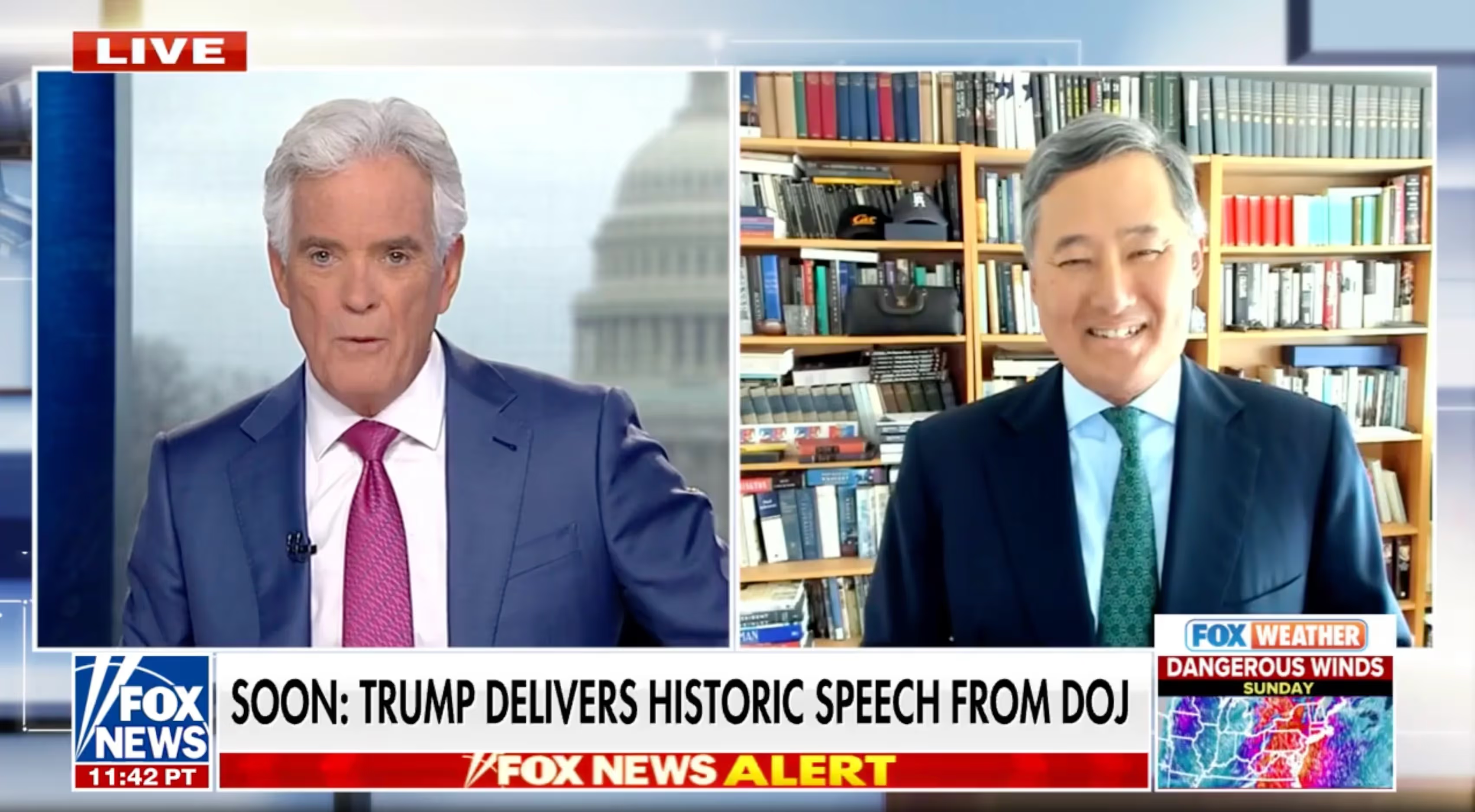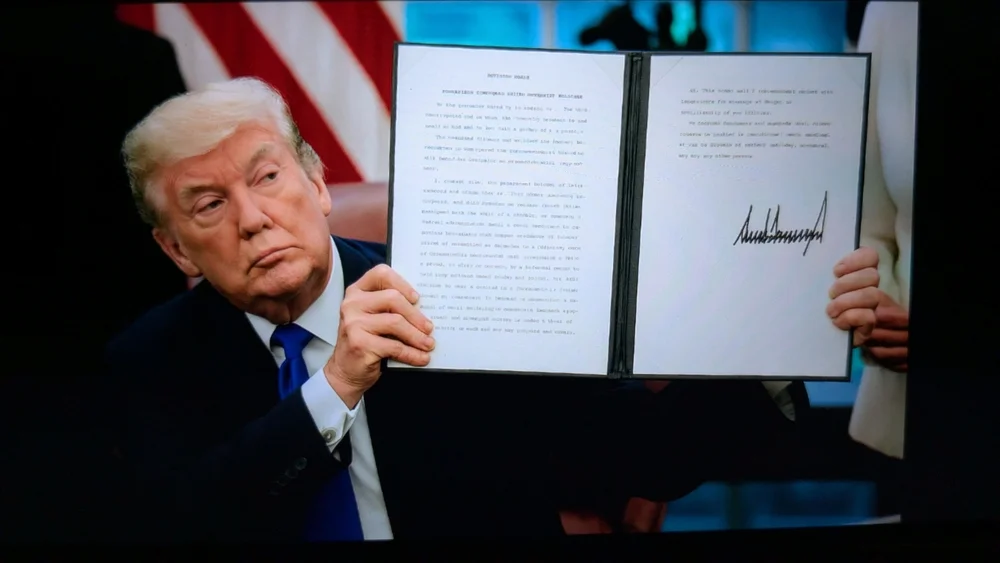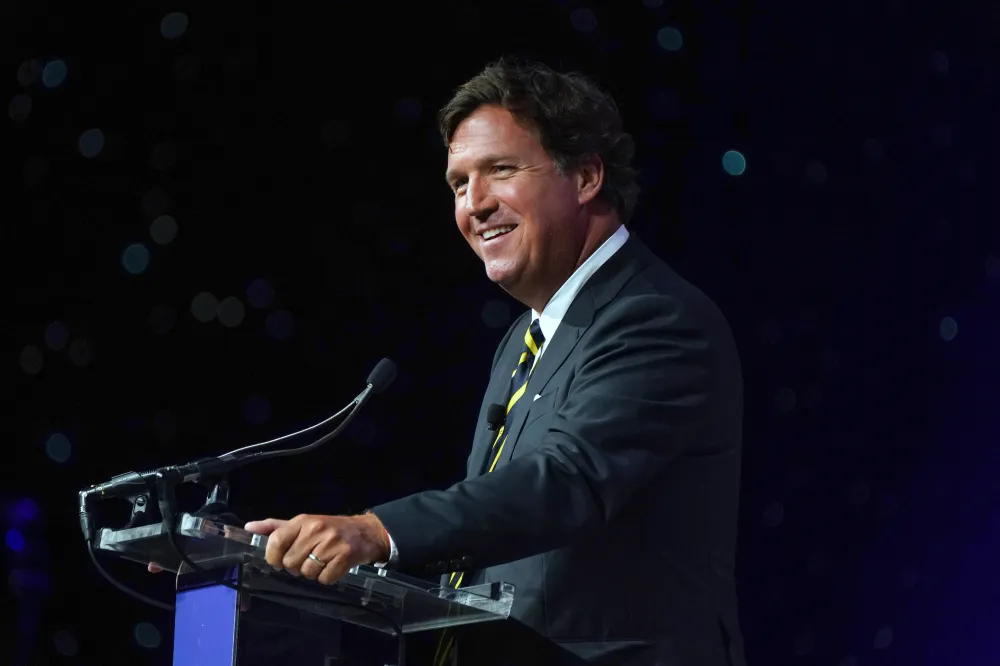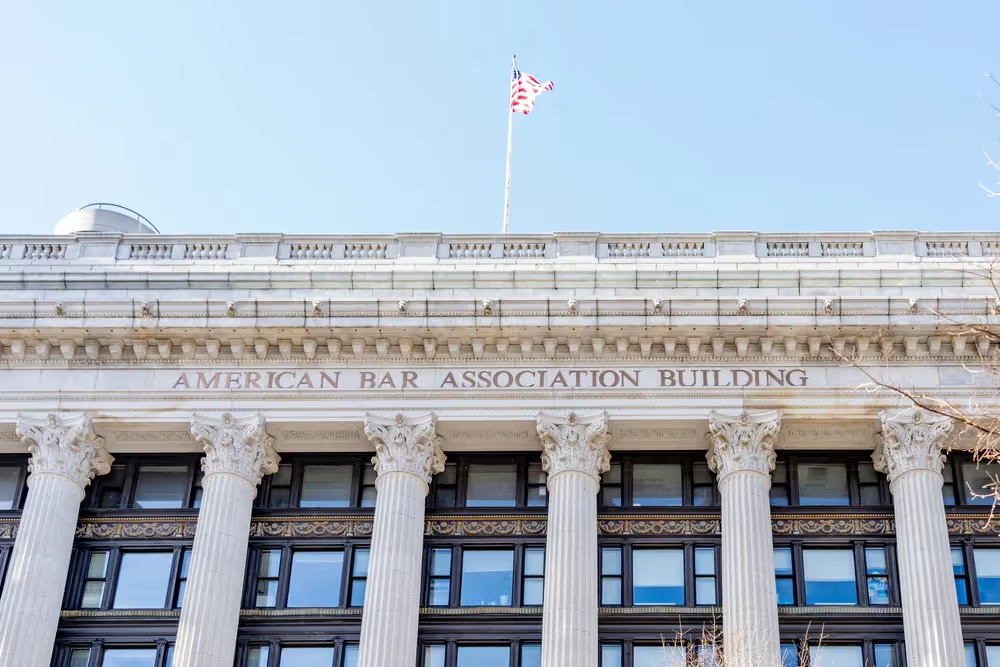
The ABA Deserves to Lose Its Accreditation Monopoly
The ABA has used its accreditation monopoly to bend law schools to its ideological will.
Editor's Note: Part of Civitas Outlook's "Texas and the Future of Legal Education" Symposium.
Leadership failures and bureaucratic bloat have led to a crisis in higher education. We’ve seen a subversion of the core university missions to seek truth and knowledge, as well as a distortion of classical liberal values such as free speech, due process, and equality under the law. The theme of my new book Lawless is that this illiberal dynamic is particularly dangerous in the context of law schools, which produce the gatekeepers of our legal and political institutions.
The root cause of all of this is a noxious postmodern ideology that contends that truth is subjective and must be viewed through the lenses of race, gender, and other identity categories, according to some privilege hierarchy. Your rights and freedoms depend on whether you’re part of a class deemed oppressor or oppressed. It’s a frontal attack on the rule of law on which American liberty, equality, and prosperity reside.
One of the underappreciated aspects of what’s gone wrong, especially with law schools, is accreditation. Analyzing the rules governing legal education may not be as attention-grabbing as showing how critical theory has perverted pedagogy or documenting the inquisitions of DEI offices, but it’s crucial for understanding underlying pathologies and thus for any possibility of reform. That’s why Attorney General Pam Bondi wrote to the American Bar Association in February to demand that it abandon its diversity mandates or lose the role it’s held since 1952 as the sole accreditor of U.S. law schools. And it’s why President Trump’s April 23 executive order on accreditation specifically called out the ABA requirement that law schools have “a student body that is diverse with respect to gender, race, and ethnicity” as violating the Supreme Court’s 2023 decision in Students for Fair Admissions v. Harvard to bar racial preferences.
The Texas Supreme Court has now also gotten into the act, soliciting comments on “whether to reduce or end” reliance on the ABA for determining which law schools meet the “legal study” requirement to be a licensed lawyer. This move follows a similar one by the Florida Supreme Court, which also cited the “ABA’s active political engagement.” These developments are overdue and should conclude by removing the ABA’s monopoly on law-school evaluation.
There was a time when the ABA was one of our leading institutions and a relatively conservative, or at least institutionalist, one. Most lawyers paid dues, and Lewis Powell parlayed his presidency into a seat on the Supreme Court! However, the ABA then began moving leftward, and a group whose complaints once led Chief Justice Warren Burger to address concerns about how the Warren Court's activism became a progressive energy center. The ABA now adopts policy positions and files amicus briefs that go far beyond issues of particular concern to the legal profession. It long ago alienated conservatives—who now have the Federalist Society as a membership organization—but in recent years it’s also lost the broad swath of lawyers who don’t want to mix work and politics, such that fewer than 15 percent are members.
Allegations of ABA bias go back to Richard Nixon, who called the group “a bunch of sanctimonious assholes”—though more for elitism, and Nixon did end up appointing Powell. But studies show that the ABA rates Democratic judicial nominees higher than Republican ones, all things being equal, justifying the decisions of George W. Bush and Donald Trump to stop having the association prescreen candidates. (Joe Biden became the first Democratic president to do likewise, out of frustration that many of President Obama’s “diverse” candidates had been rated “not qualified.”) More recently, Attorney General Bondi cut off the ABA’s access to non-public information about nominees, calling the group “activist.”
Beyond its judicial evaluations, the ABA has used its accreditation monopoly to bend law schools to its ideological will. For example, in February 2022, the ABA instituted a new rule that all law schools must “provide education on bias, cross-cultural competency, and racism” through compulsory “orientation sessions, lectures, courses, or other educational experiences.” Ten Yale law professors, including such liberal lions as Bruce Ackerman and Akhil Amar, responded with an open letter calling it a “disturbing” attempt to “institutionalize dogma.”
Even before our recent “woke” era, the ABA’s Section of Legal Education pressured schools to engage in racial balancing and lower academic standards in favor of diversity. Deans and faculty often support such enforcement for ideological reasons, but also to control the competition: If one school uses preferences not based on merit, it hurts its academic profile and bar passage rate. But if all law schools have to do the same, nobody will be worse off relatively.
“In essence, the ABA enforces a ‘diversity cartel’ among law schools, effectively insulating schools that give large preferences from competition on issues like bar passage rate with schools that would rather give smaller preferences or none at all,” wrote Gail Heriot, a longtime member of the U.S. Commission on Civil Rights. This mutually reinforcing cartel was of dubious legality even before the Supreme Court outlawed such preferences, but still a regulatory conformity flourished. Indeed, the ABA hasn’t hesitated to overrule the educational judgment of the law schools it regulates. In 2006, for example, Charleston School of Law unexpectedly failed to win accreditation due in part to race concerns, until the dean promised to do “whatever we have to do” and hired a new diversity director. The case of George Mason University Law School’s reaccreditation in the early 2000s is even more troubling.
There’s now also a growing dissonance between the ABA and state supreme courts and bar associations. For example, scholars from across the political spectrum contend that the ABA’s Model Rule of Professional Conduct 8.4(g), targeting “harassment or discrimination” on the basis of assorted protected categories, suggests a speech code, such that almost every state has rejected the rule. Meanwhile, Florida’s Supreme Court found that the ABA’s diversity requirement for continuing-legal-education speakers amounted to a discriminatory quota. As South Texas law professor Josh Blackman wrote in April 2023, “As the ABA drifts further and further away from the regulation of the legal profession, and focuses more and more on achieving progressive societal goals, the organization’s mandate dissolves.”
Accordingly, states should encourage the development of alternative rating and accreditation systems and join interstate compacts to ensure bar reciprocity. As Harvard history professor James Hankins has written, state agencies could use FIRE free-speech rankings, among others, to grade institutions, instead of social-justice or DEI metrics, endowment size, and other criteria that favor wealthy, progressive universities. State authorities are fully justified in directing regulatory efforts to produce better stewards of the public trust.
This past February, after 21 attorneys general sent a letter opposing the ABA’s diversity and inclusion standard, the ABA announced that it was suspending the rule’s enforcement while considering revisions. The first proposed revision eliminated references to race, ethnicity, and gender, but criticism that the change went too far led the ABA to offer a second proposal that requires schools to show through “concrete action” a commitment to including groups that historically have been excluded from the legal profession. The state-AG letter said both proposals “impermissibly impose race-based admissions and hiring requirements as a condition of accreditation.” Thus came the federal intervention described at the outset of this essay.
There’s still a long way to go before law schools return to their core mission of teaching future lawyers to uphold the rule of law, but the ABA isn’t helpful in that reform effort either. Opening up accreditation is a solid step forward.
Ilya Shapiro is director of constitutional studies at the Manhattan Institute and author of Lawless: The Miseducation of America’s Elites. He also writes the Shapiro’s Gavel newsletter.
Politics
.webp)
Liberal Democracy Reexamined: Leo Strauss on Alexis de Tocqueville
This article explores Leo Strauss’s thoughts on Alexis de Tocqueville in his 1954 “Natural Right” course transcript.
%20(1).avif)
Long Distance Migration as a Two-Step Sorting Process: The Resettlement of Californians in Texas
Here we press the question of whether the well-documented stream of migrants relocating from California to Texas has been sufficient to alter the political complexion of the destination state.
%20(3).avif)
Who's That Knocking? A Study of the Strategic Choices Facing Large-Scale Grassroots Canvassing Efforts
Although there is a consensus that personalized forms of campaign outreach are more likely to be effective at either mobilizing or even persuading voters, there remains uncertainty about how campaigns should implement get-out-the-vote (GOTV) programs, especially at a truly expansive scale.

Decadent Ideology, Decaying Fraternity
Richard Reinsch reviews Prosperity and Torment in France by Chantal Delsol.
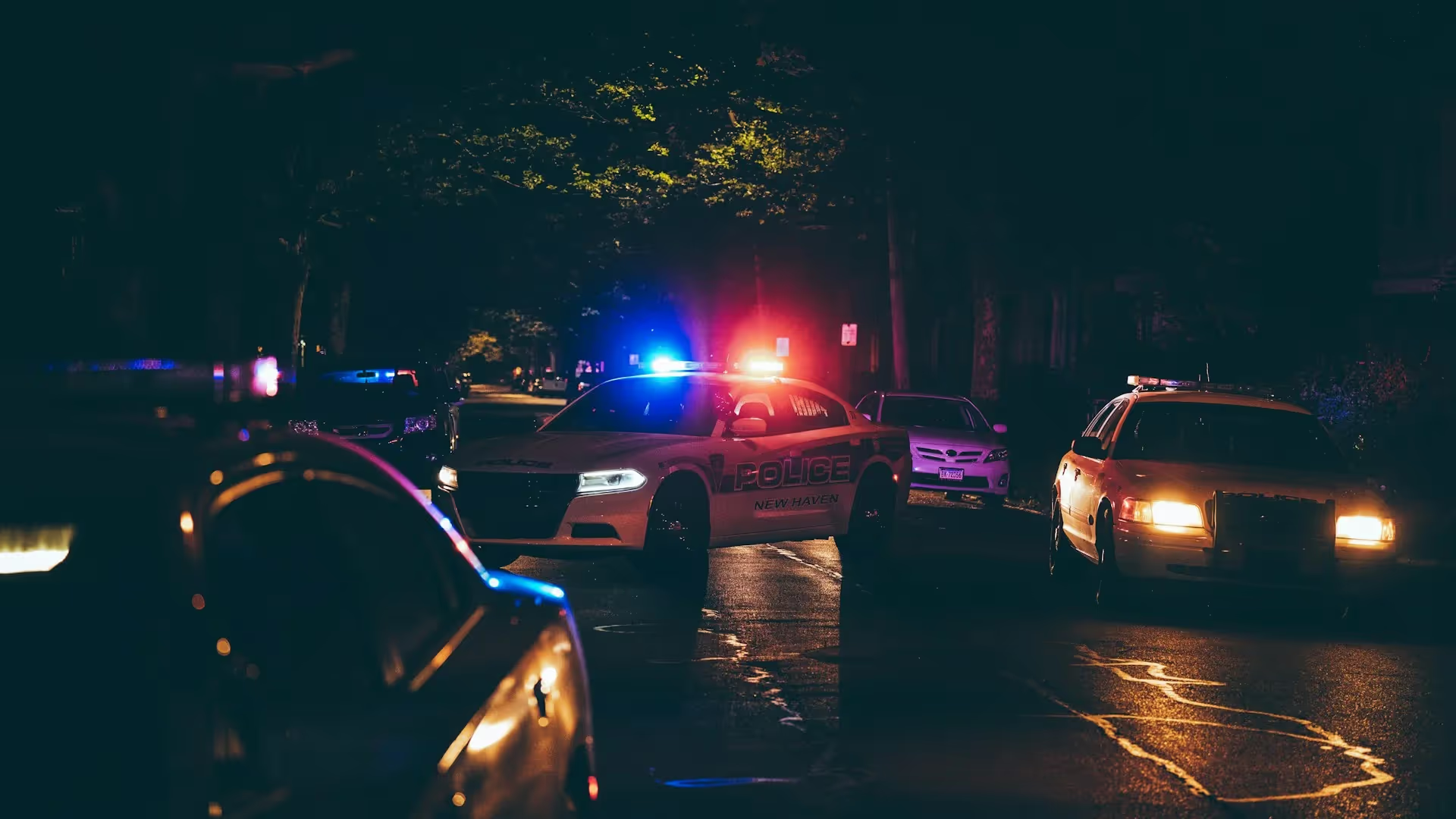
DC and LA Failures Play Into Trump’s Hands
Although clearly violating America’s long-standing federalist principles, Trump’s incursions are being justified by the incompetence of most blue-city leaders.


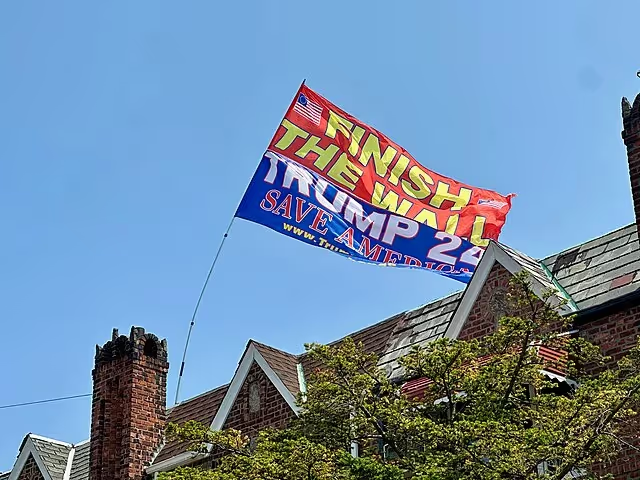

.avif)





